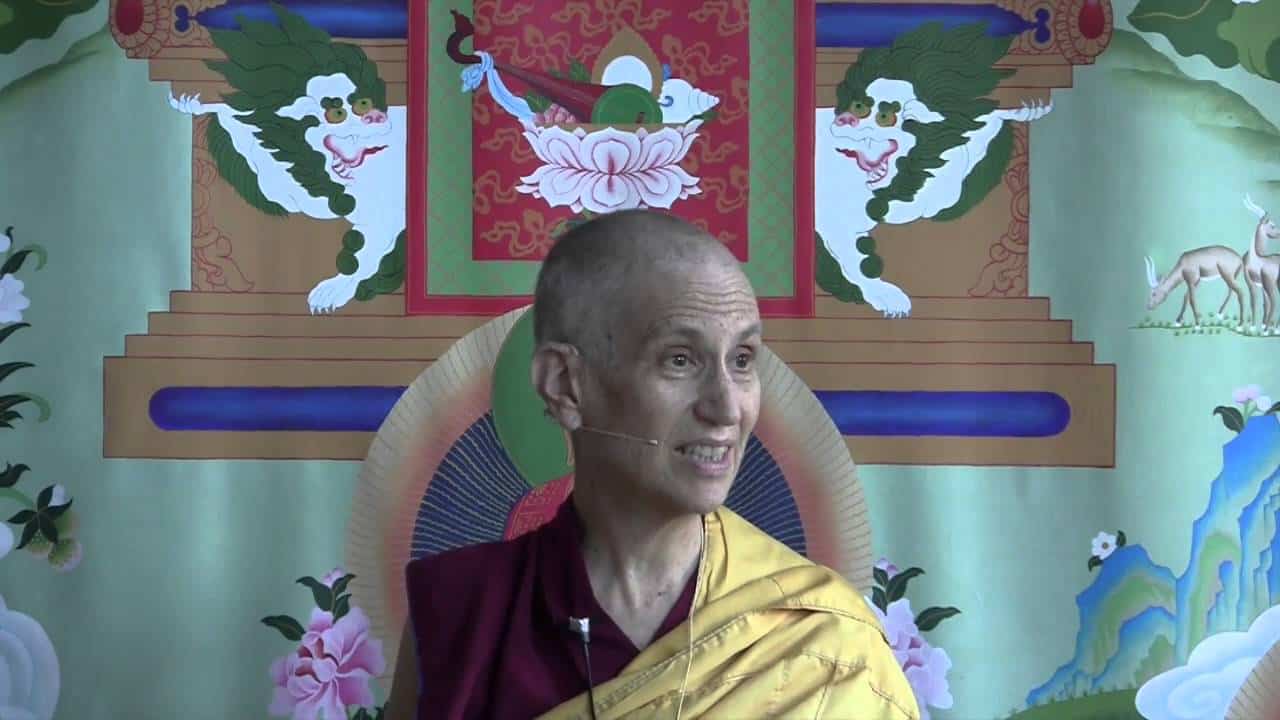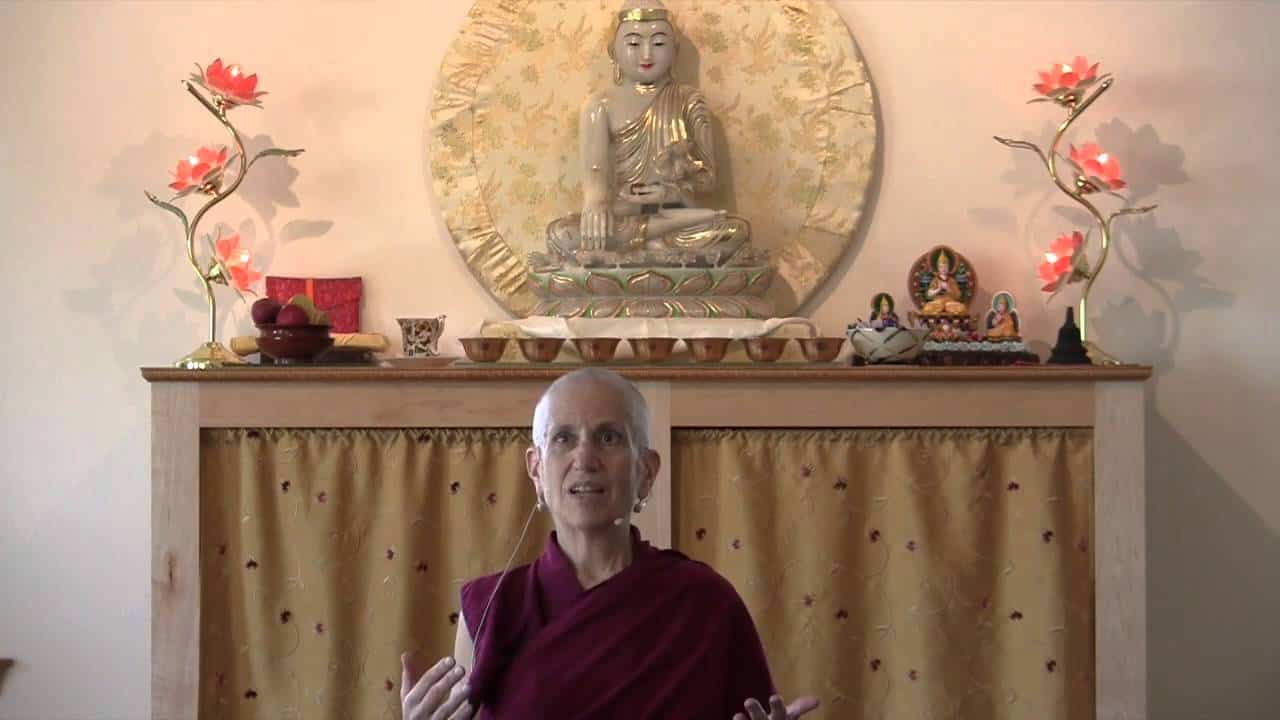The permutations of karma
Having generated the motivation for a good rebirth, the text turns to creating the causes for that goal. Part of a series of teachings on the Gomchen Lamrim by Gomchen Ngawang Drakpa. Visit Gomchen Lamrim Study Guide for a full list of contemplation points for the series.
- Answers to questions from the previous week’s teachings on karma
- Definite and indefinite karma
- Karma done, accumulated, and experienced—four permutations
- Ten types of actions that are not certain to bring results
- The factors that influence when karma will ripen and ramifications for practice
Gomchen Lamrim 33: The permutations of karma (download)
Contemplation points
- What are definite and indefinite karma? In the context of definite and indefinite karma, what is the definition of “done?” What is the definition of “accumulated?”
- What about virtuous and non-virtuous mental karma? Are they necessarily done? Accumulated?
- Karma that isn’t accumulated doesn’t mean it is lost. How might unaccumulated karma manifest?
- Consider the ten actions that are considered done but not accumulated (actions done in dreams, done unknowingly, done unconsciously, done without intensity or not continuously, done mistakenly, done forgetfully, done without wanting to, that are ethically neutral, eradicated through regret, and eradicated with a remedy). Think about actions you have done in your own life that fall into these categories. Why are they considered done but not accumulated?
- Consider the six characteristics of karma that are both done and accumulated: actions done deliberately, all parts of the action are complete, the person doesn’t regret the action afterwards, no antidote is applied to purify, the person rejoices at having done the action, the result is certain to be experienced. Think of examples in your life of actions (both virtuous and non-virtuous) that were both done and accumulated. Why are these actions considered the main cause of a ripening result?
- What is an example of karma that is not done but accumulated? What is an example of an action that is neither done nor accumulated?
- Why is it that karma that is definite does not imply predetermination? What can impede the ripening of definite virtuous karma? What can impede definite non-virtuous karma?
- In terms of WHEN a karma can ripen, consider the factors that make a karma more likely to ripen quickly, even in this very life: strong attachment or disinterest in the body, great malice/great compassion for others, deep malice/great regard for Three Jewels and spiritual mentors, intense animosity/intense wish to repay kindness of those who have been kind to us. Why is it that these particular actions make the karma more likely to ripen in this life vs. in the next or in lives beyond the next?
- How does thinking about these factors change the way you think about how you interact with the world?
Venerable Thubten Chodron
Venerable Chodron emphasizes the practical application of Buddha’s teachings in our daily lives and is especially skilled at explaining them in ways easily understood and practiced by Westerners. She is well known for her warm, humorous, and lucid teachings. She was ordained as a Buddhist nun in 1977 by Kyabje Ling Rinpoche in Dharamsala, India, and in 1986 she received bhikshuni (full) ordination in Taiwan. Read her full bio.


